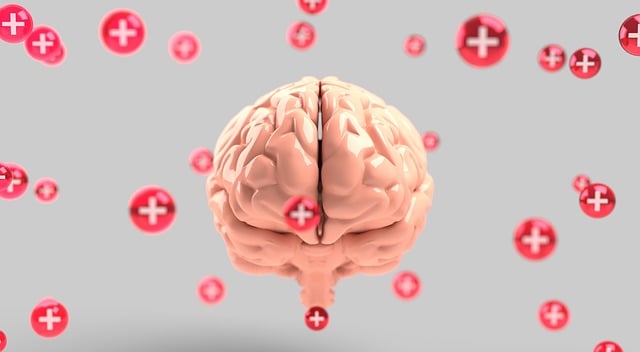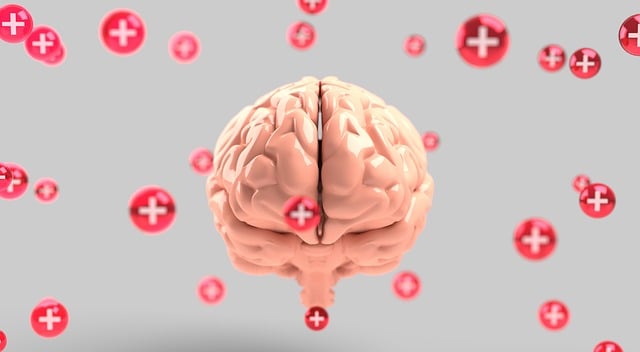Major life transitions can be emotionally challenging, impacting mental wellness significantly. Therapy for Major Life Transitions is crucial for navigating these changes healthily. Mental health professionals need tools to assess risk and provide tailored support through comprehensive risk assessment, fostering resilience and positive coping strategies. Key interventions include mood management, empathy-building, stress reduction techniques, self-care practices, and mindfulness exercises. Effective communication, ongoing care, self-awareness exercises, community outreach, and anxiety relief practices create robust support systems promoting lasting well-being during pivotal moments.
In times of crisis, effective intervention strategies are vital to guiding individuals through major life transitions. These transitions—such as divorce, job loss, or bereavement—can significantly impact mental health and overall well-being. This article explores comprehensive crisis intervention techniques across diverse scenarios. We delve into understanding the psychological effects of major life changes, offer practical strategies for support systems implementation, and emphasize post-intervention care. Discover how therapy for major life transitions can facilitate resilience and healing.
- Understanding Major Life Transitions and Their Impact
- Crisis Intervention Strategies for Different Scenarios
- Implementing Effective Support Systems and Post-Intervention Care
Understanding Major Life Transitions and Their Impact

Major life transitions, such as starting college, graduating, getting married, or experiencing a significant loss, can be both exciting and challenging. These events often bring about a mix of emotions, from euphoria to anxiety, and can significantly impact an individual’s mental wellness. Understanding these transitions and their effects is crucial for crisis intervention strategies. Therapy for Major Life Transitions plays a vital role in helping individuals navigate these changes healthily. Mental health professionals must be equipped with the right tools and Mind Over Matter principles to assess risk effectively during such times, ensuring they provide tailored support.
A comprehensive risk assessment is essential in identifying potential mental health concerns that may arise from major life transitions. By integrating this assessment into their practice, mental wellness coaching programs can be developed to offer proactive guidance. This approach enables professionals to foster resilience and promote positive coping strategies, ultimately enhancing individuals’ ability to adapt and thrive during these pivotal moments in their lives.
Crisis Intervention Strategies for Different Scenarios

In different scenarios, crisis intervention strategies vary significantly, but common elements include mood management techniques and empathy building strategies. For instance, in the context of therapy for major life transitions, a crisis intervenor should help individuals process their emotions effectively. This may involve guiding them through stress-reducing practices, encouraging self-care routines, and teaching mindfulness exercises to enhance emotional resilience.
Effective communication strategies are also pivotal. Active listening, open-ended questioning, and reflecting on what the individual is expressing all foster a safe and non-judgmental space, encouraging them to share their thoughts and feelings. These techniques not only help in mood management but also build rapport, allowing for deeper exploration of the crisis and more tailored support.
Implementing Effective Support Systems and Post-Intervention Care

Implementing effective support systems is a cornerstone of crisis intervention strategies. Following an initial intervention, it’s crucial to provide ongoing care that reinforces positive changes and promotes resilience. This can involve integrating various therapeutic approaches tailored to individual needs, such as therapy for major life transitions. Self-awareness exercises play a significant role in this process, helping individuals gain insights into their triggers, coping mechanisms, and emotional responses. By fostering self-reflection, these exercises empower individuals to navigate challenging situations more effectively.
Community outreach program implementation further strengthens the support ecosystem by connecting individuals with local resources, support groups, and services. These initiatives create a sense of belonging and provide opportunities for social integration, which is vital for recovery. Additionally, addressing anxiety relief through evidence-based practices ensures that individuals can manage stress and prevent future crises. By combining these strategies, support systems become comprehensive and effective in guiding individuals toward lasting well-being.
In navigating life’s intricate tapestry, understanding major life transitions and their impact is a crucial step towards effective crisis intervention. By recognizing the unique challenges each transition presents, we can implement targeted strategies such as trauma-informed care and mindfulness practices. Fostering robust support systems that offer post-intervention care, including ongoing therapy for major life transitions, ensures individuals have the resources needed to thrive. Embracing these approaches empowers us to assist others through crises and promote lasting resilience.














